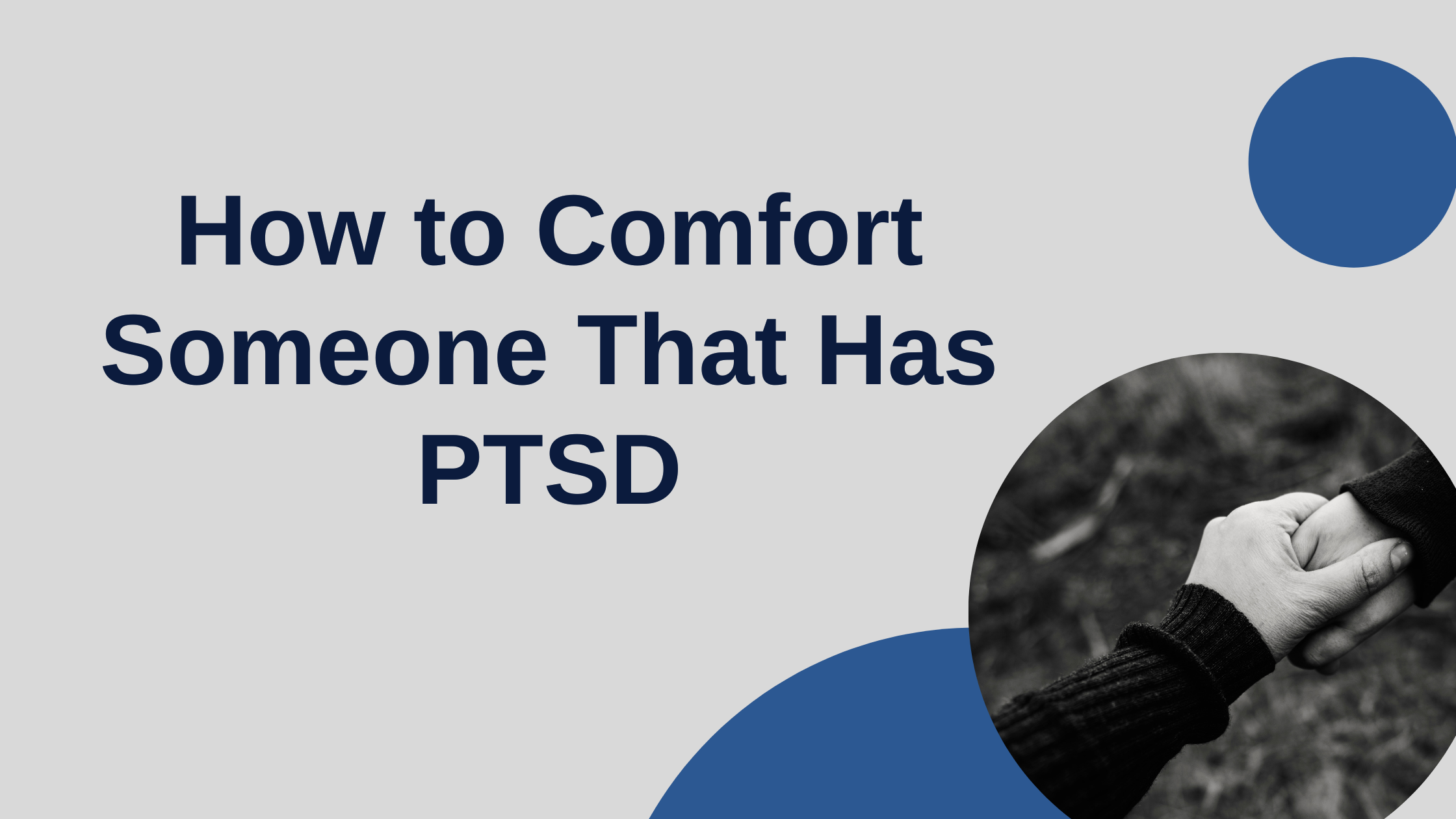
To witness a friend or a loved one suffer from post-traumatic stress disorder (PTSD) is not easy. Not only is PTSD difficult to live with for the individual, but it takes a toll on the people who care about them. First and foremost, it is important to understand the symptoms of PTSD. Post-traumatic stress disorder (PTSD) is a mental health condition that is triggered by a terrifying event, either experiencing it or witnessing it. Symptoms may include flashbacks, nightmares, and severe anxiety, as well as uncontrollable thoughts about the event. PTSD symptoms can vary in intensity over time.
Here are some ways you may be able to comfort your friend or loved one who suffers from PTSD.
- Listen to them and practice effective communication on their terms. Allow them to speak without interruption or judgement, in hope that they will feel heard and acknowledged.
- Be patient as there is no set timeline for how long it will take to heal from PTSD.
- “Normal” activities that do not have anything to do with their PTSD experience may be a good thing to encourage. Some examples include spending time with friends, picking up a hobby, or finding some form of exercise that is enjoyable.
- Educate yourself on PTSD, and your friend or loved one’s personal triggers. To learn their triggers will help you to anticipate and prepare for these situations, or ideally, be able to avoid them.
- Support them in times of distress as best you can. It can be helpful to remain calm, give them some space, ask how you can help, and offer a safe space in the situation.
- Self-care is crucial for the friends or loved ones who help someone cope with PTSD. As you nurture and care for yourself, you create a healthier headspace and environment to support others.
If they are not in the position where they currently receive professional treatment, it may be helpful to research some options. This way, you will be able to contribute to their efforts when they are ready to see what is available for them.
Pharmasite is currently enrolling patients for a post-traumatic stress disorder (PTSD) clinical research study. If you, your friend, or a loved one lives with PTSD and want to learn more about this study, call us at 410.602.1440 and fill out your information here.






